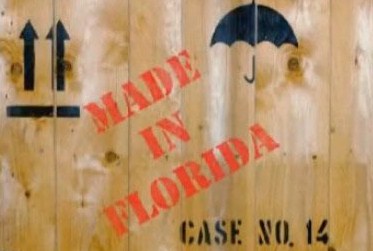Bill Seeks To Help Manufacturing In Florida

As for manufacturing, “we are woefully behind compared to the rest of the nation in producing those jobs,” said Rep. MaryLynn Magar, R-Tequesta.
Her measure (HB 391) was approved by the House Economic Development and Tourism Subcommittee. It was opposed by three of the panel’s Democrats.
“I’m not against manufacturing, but I’m not for giving away everything to one industry,” said Rep. Hazelle Rogers, D-Lauderdale Lakes. “They need to pay something, and there needs to be some accountability.”
Rep. Bruce Antone, D-Orlando, questioned whether such tax breaks actually attract jobs and investment. Rep. Betty Reed, D-Tampa, said the revenue lost from the tax break could go to help Florida’s neediest residents.
The tax break could cost the state more than $100 million in revenue by the second year, according to forecasts. A similar measure is being considered in the Senate.
But Magar and other supporters said the tax incentive would result in a net gain in revenues by encouraging manufacturers to hire more workers and boost investment in the Sunshine State. The result would be more workers paying taxes, they said.
Afterward, Magar sounded upbeat about the chances of eliminating the sales tax charged on equipment purchased by manufacturers.
But the proposed tax cut has drawn a lukewarm response from some Republican legislative leaders.
House Speaker Will Weatherford recently said the governor’s push for the tax cut was still alive but added that it’s not cheap.
Senate President Don Gaetz said Wednesday he supports the idea of the manufacturing tax break, but said he would like to see it tied to job creation.
The effort to assist manufacturers comes amid signs of an economic rebound in Florida.
Florida’s seasonally adjusted unemployment dipped to its lowest level in more than four years in February to 7.7 percent, and officials have pointed to the state’s rising tax revenue.
The tax break legislation seeks to capitalize on a sector that flexes plenty of economic muscle.
The state’s manufacturers employ more than 300,000 workers. Those workers earn $53,000 per year on average, well above many other private-sector jobs, Magar said.
Every manufacturing job created spins off more than two other jobs to handle such tasks as shipping and logistics, she said, and every $1 spent in manufacturing generates another $1.43 in economic activity.
But Florida has failed to capitalize on its manufacturing potential, ranking just 43rd nationally in manufacturing employment, she said.
Supporters said the tax break would enhance Florida’s bargaining position in competing with regional states for manufacturers.
“We cannot create wealth or improve our standard of living by cooking each other a hamburger or washing each other’s car or washing each other’s clothes or mowing each other’s lawn,” said Rep. Neil Combee, R-Polk City.
The sales tax exemption on equipment purchases already exists, Magar said, but many manufacturers have been unable to capitalize on it. The bill seeks to remedy that situation.
One company that hasn’t benefited is The Ronco Group, which designs and builds manufacturing equipment at its operations in Florida and Pennsylvania.
Ron Avery, the company’s chairman, said the tax break on equipment purchases would be an incentive to do more of the work in Florida.
His company generally purchases new equipment whenever it develops new product lines, he said. Those equipment purchases range from $250,000 to $1 million each year.
Associated Press Writers Gary Fineout and James L. Rosica in Tallahassee contributed to this report.


Leave a Reply
Want to join the discussion?Feel free to contribute!